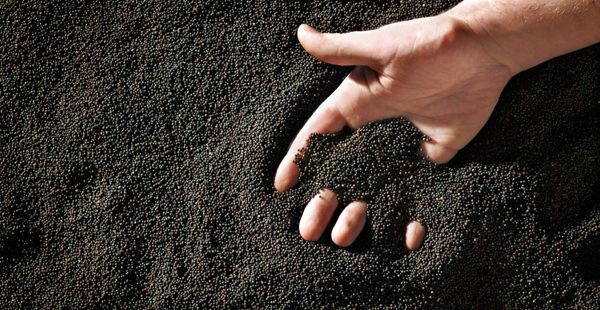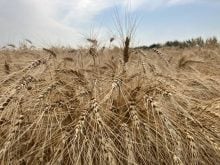CNS Canada — Canadian and Chinese officials met in Beijing last week to discuss potential solutions for an upcoming canola trade policy change, but were not able to find a solution ahead of a looming deadline.
China’s quarantine authority is set to impose a standard that would allow just one per cent organic waste material in canola shipments, starting Sept. 1. Previously, 2.5 per cent dockage was allowed.
Canada’s agriculture and trade ministers have discussed the issue with their Chinese counterparts and with China’s ambassador to Canada. They have also been in close contact with the Canola Council of Canada (CCC), federal media relations officials said.
Read Also

U.S. grains: Soy futures post biggest monthly gain in nearly five years on China trade optimism
U.S. soybean futures climbed to a 15-month high and posted their biggest monthly gain in nearly five years on Friday following a rally fueled by the prospect of revived exports to China.
Officials were unable to find a resolution during the talks, which started last Wednesday, leaving the deadline for new canola standards standing.
That poses a huge risk to Canada’s canola farmers and markets, said CCC president Patti Miller, who attended the discussions in China.
There haven’t been any substantive changes in position at this point in time, she said. “Officials are working diligently to try and come up with a means to resolve the impasse that we’re at right now.
“It would put canola at a competitive disadvantage to any other oilseed going into China.”
The market impact of the dockage change is being felt already, as canola trade from Canada to China past Sept. 1 has virtually stopped, she added.
The proposed dockage regulations would have an impact on farm income, as China is the largest market for Canadian oilseed. As of the end of June, Canada exported 9.3 million tonnes of canola, with China taking 3.5 million in the 2015-16 crop year, according to Canadian Grain Commission data.
“To lose that market, or significantly reduce that market, would have a serious impact on farm income, and quite frankly profitability along the entire value chain,” Miller said.
Canada’s system is built to move bulk commodities quickly and effectively to export customers, and attempting to sell low-dockage canola would slow canola seed exports, among other commodities, she said.
Both the Canadian government and the Canola Council maintain the position that reducing dockage beyond current export standards is not commercially viable and not based on science.
Chinese officials are concerned that a canola disease found in Canada, blackleg, could be transmitted to the country’s rapeseed-growing areas.
Miller said the CCC is looking at the best vehicles to mitigate the risk of that happening. “We don’t believe, as Canadians, that reducing dockage will address their concerns.”
Canada will continue to work with industry and engage with China on a permanent and commercially viable outcome for canola exports to China, federal media relations officials said.
Prime Minister Justin Trudeau is expected to visit China ahead of a Group of 20 (G20) meeting in Hangzhou in September.
— Jade Markus writes for Commodity News Service Canada, a Winnipeg company specializing in grain and commodity market reporting. Follow her at @jade_markus on Twitter.












